> higher education
Getting Warmer…
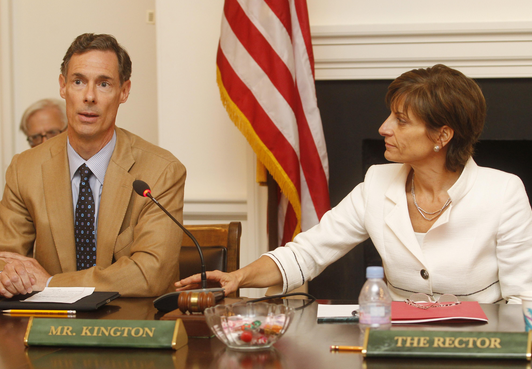 Did Old Dominion Resources U. Allow A 'War on Coal' clause in that endowment stocking?
Did Old Dominion Resources U. Allow A 'War on Coal' clause in that endowment stocking?
Part 2 of Mann & Corporate Person At UVA
The unofficial official motive behind the plot against Sullivan has been expressed variously as an alleged insufficient enthusiasm on her part for "strategic dynamism" and insufficient enthusiasm for online education. None of these were remotely satisfying, but there was a familiar Fox/MSNBC-Nonsensusphere/Consensusphere rhetorical dynamic to the way they played off one another and ultimately generated the illusion that the matter, whatever it was, had been settled. I was almost lulled into believing this too, until Kington's preposterous threats jolted me back into reality. Then this week the "online education" allegation against Sullivan was downgraded to wholly fraudulent. There just isn't any money in unearthing "the truth" these days.*
Kington is a longtime director of Dominion Resources, the state utility and a near-impregnable force in local politics central to the governor’s plan to make Virginia the "Energy Capital of the East Coast." As of this morning Kington's 65,648 share stake in the company is worth about $3.557 million, or more than $2 million more than the $1.5 million he pledged to invest in the environmental sciences department of UVA.
While widely regarded in the investment community for its rich and reliable dividend yield, Dominion's carbon footprint happens to be something of a national embarrassment since 2007, when it broke ground on what may be the last coal-fired power plant ever built in America, putting the utility's reliance on coal on track to surge past that of reigning smog champion Southern Energy. Helen Dragas, the rector with whom he conspired to oust Sullivan, also sits on the Dominion board. Emails released in the flurry of FOIA requests fielded by the university in the wake of their bizarre coup portray Dominion CEO (and former UVA rector, and current Virginia Commonwealth University trustee) Thomas Farrell as a source of helpful strategic advice on coping with a late winter hunger strike.
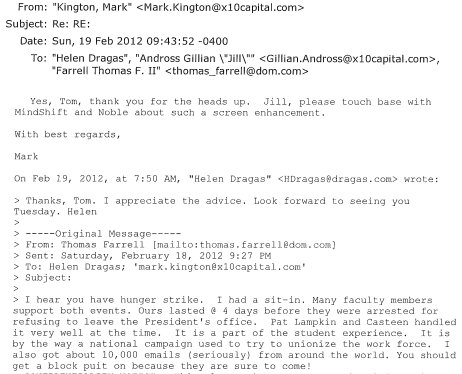
There are other ties to Dominion on the Board: George Martin is a partner at McGuireWoods, which is practically a subsidiary of Dominion: Farrell used to work there, lists chairman Richard Cullen as his “best friend” and at any given time probably has dozens of the firm’s attorneys on retainer; last year an energy company chaired by board member and investor Robert Hardie was acquired by Farrell’s 29-year-old son.
Here, watch Kington school Dragas in boys' club best practices for publicly brown-nosing excecutives in the mass email to board format.
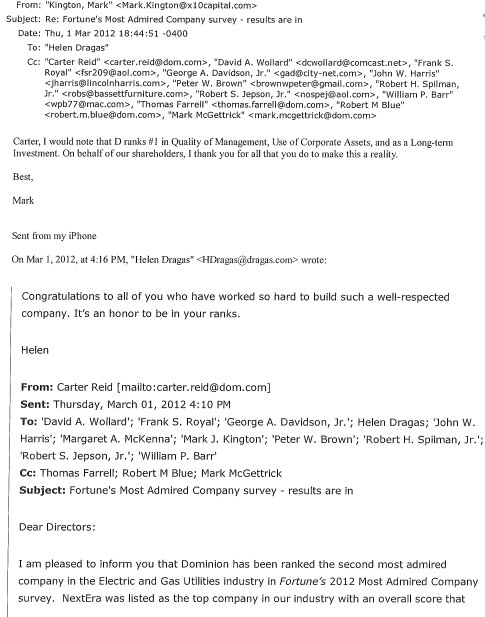
The ties also run deep between Dominion and Ken Cuccinelli. At $121,500 in donations it's the second largest individual contributor to his political career after Lynn Via, whose late grandfather the right wing defense contractor Harry Bradley co-founded the massive Bradley Foundation and the John Birch Society before it. The third biggest, a Pittsburgh consultancy called Quest Fore Inc. owned and operated by his father, a lifetime fossil fuel man (who was also once a big shot at the American Gas Association) Ken Cuccinelli Sr., lists Dominion as a major client; he left a job as an international executive of Consolidated Natural Gas two years before Dominion acquired it in 1999. The fifth biggest—the tobacco giant formerly known as Philip Morris is fourth—is Alpha Natural Resources, the coal company that last year merged with the infamous Massey Energy; the sixth is Richard Gilliam, who sold his own family coal company Cumberland Resources to Massey the year earlier and together with his brother and co-owner Marvin has invested more than $80,000 in Cuccinelli’s political career; Marvin Gilliam sits on the UVA Board of Visitors. Richard Gilliam belongs to the Koch Brothers' "honor roll" frequent election buyers' club.
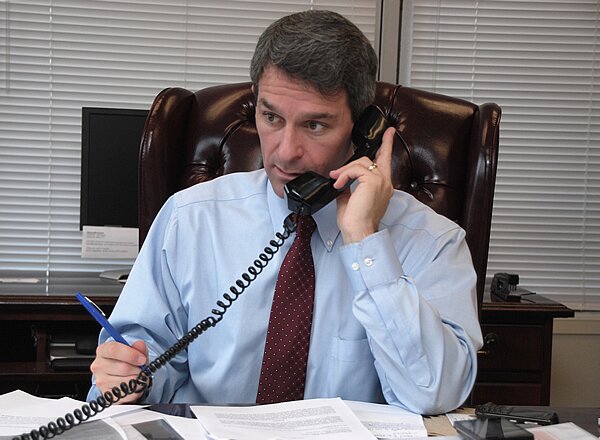
None of this should be construed to imply that the clout of Dominion is ultimately culpable here; I actually suspect some of the reverse. The fact that coal stands to lose out most if the federal government moves to curb greenhouse gas emissions has not changed since the last time Michael Mann worked at UVA, when he was awarded tenure without apparent incident during Tom Farrell’s own term as rector. (He left for Penn State in large part because they offered his wife a better job.) Back then, however, most energy companies viewed climate change legislation as an inevitability, one Dominion was planning to hedge by adding new nuclear plants to its arsenal, lobbying to subsidize construction of a new one and pushing for legislation to "re-regulate" the state's power market, restoring its official monopoly while submitting to price controls. Around the same time the Edison Electric Institute, the powerful utility lobby in which Farrell has done numerous stints as chairman and vice-chairman, began pushing for federal climate change legislation, reversing the giving strategy of its political action committee from a 1:2 Democrat/Republican ratio in 2006 to a 2:1 in 2008 and 2010.
From which one can only conclude the industry was caught somewhat unawares by the dramatic comeback about to be staged by the denial lobby, a comeback that was probably perceived as a serious threat to the clout of gentlemanly corporate welfarists like Dominion in a political landscape that had suddenly deemed the most egregious corporate plunderers entitled to their heartfelt apologies.
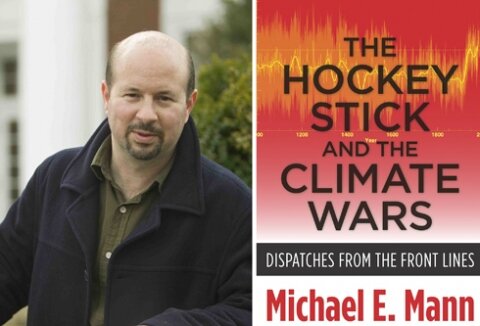 Michael Mann was one of the few who wasn't caught off-guard, as he recalls in , a memoir about his research and the fatwa it inspired released earlier this year. “Most don’t accept the seriousness of the battle we are going to face here,” he wrote in a February 2009 email to a listserv of fellow climate scientists. Most of them had, after all, never gotten a death threat or an envelope full of mysterious white powder in the mail, or been served with a subpoena from a congressional committee or heard the doorbell ring late one night to announce the arrival of a dead rat on the doorstep and the speedy departure of a Hummer from the driveway. (That last one didn’t actually happen to Mann but to Ben Santer, the climate scientist at Lawrence Livermore Laboratories who served as the preeminent cartoon villain of the denial lobby in the pre hockey era.) And because most of them had never been subpoenaed by or hauled before congress, they had no idea what was about to hit them now that a climate science friendly president was in the White House. Do not cave in, Mann warned his colleagues, to “complacency in the face of what is clearly a mounting, well organized, and well funded last attack, a Battle of the Bulge if you will," against the profession.
Michael Mann was one of the few who wasn't caught off-guard, as he recalls in , a memoir about his research and the fatwa it inspired released earlier this year. “Most don’t accept the seriousness of the battle we are going to face here,” he wrote in a February 2009 email to a listserv of fellow climate scientists. Most of them had, after all, never gotten a death threat or an envelope full of mysterious white powder in the mail, or been served with a subpoena from a congressional committee or heard the doorbell ring late one night to announce the arrival of a dead rat on the doorstep and the speedy departure of a Hummer from the driveway. (That last one didn’t actually happen to Mann but to Ben Santer, the climate scientist at Lawrence Livermore Laboratories who served as the preeminent cartoon villain of the denial lobby in the pre hockey era.) And because most of them had never been subpoenaed by or hauled before congress, they had no idea what was about to hit them now that a climate science friendly president was in the White House. Do not cave in, Mann warned his colleagues, to “complacency in the face of what is clearly a mounting, well organized, and well funded last attack, a Battle of the Bulge if you will," against the profession.
Spoiler alert: Mann, was he on the right track. But not just about climate science. In Part 3 I explain how the corporate war on knowledge touches every realm of reality, especially in Virginia.
*Which is why I am writing this on my personal blog, where a lawsuit from Mark Kington might actually inspire sorely-needed um personal "goodwill", as opposed to the usual circumspection from editors with actual "jobs" to lose.
